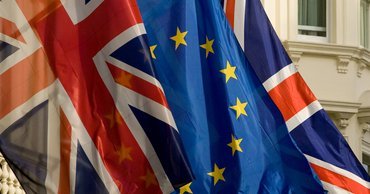The start...
The United Kingdom lies at a crossroads in its relationship with continental Europe. Indeed, amidst the tumult of the fiscal crisis battering our continent, the Euroscepticism ever present in its mainstream press has come to dominate debate in the UK. The mantra of “I told you so” has obscured productive debate on the future of the country within the European Union and how the UK can play a part in helping the people of Europe navigate the greatest crisis they have faced since the Second World War. As this article will argue, in focusing on what is and what was the UK risks losing sight of what will be. In doing so, it not only risks marginalising itself in European affairs but also depriving the European Union of a vital third force in the new community emerging from the crisis.
Blood and treasure
Jonathan Powell, formerly Tony Blair’s powerful Chief of Staff during his tenure in Downing Street, has recently stated that in turning away from Europe Britain is negating two hundred years of blood and treasure spent trying to be relevant in Europe. The UK is consistently constructed as a besieged island that throughout its history has been under threat from the assorted crazed dictators and, more latterly, bureaucrats that occupy the continent. This isolated nation, then, is depicted as succeeding despite these threats by consistently proved itself on the global stage by turning away from the continent and embracing the world. In the current economic malaise engulfing Britain, commentators state the country should focus on Brazil, China, India; they seemingly ignore its largest market: Europe.
The reluctant partner
The truth is the UK is scared of the role it could play in Europe and finds it far easier to hark back to the international maritime Empire of the past then to confront the globalised realities of the present. The country is obsessed with critiquing the regulations and edicts issued by Brussels as part of some Franco-German conspiracy to steal its sovereignty. As countries such as Greece and Italy are discovering, this may not be far from the truth but at the same time this dogma clouds a potential framework for action. In painting itself as a victim the UK is losing sight of its own economic, political and cultural power in Europe.
The future partner
Britain is one of the big three economies of Europe and with its long democratic tradition and strong relationships with various parts of the world, is well suited to be the leader of the peripheral constituents of the European Union. With the democracies of Southern Europe succumbing to technocracies, it could act as a much-needed reminder to the European political elite of the need for the people to retain their voice as well as a valuable conduit to the world. Britain must assert its position and approach the coming negotiations to formulate the destiny of Europe with confidence.
Conclusion
The potential contribution of the UK to this new Europe is a subject for further debate. What must occur first is a change in outlook. The crisis in Greece, Italy and Portugal in London’s problem as much as it is an issue for Berlin and Paris. Whilst the Germans and the French construct a solution to the crisis, the UK is twiddling its thumbs, focusing on potentially cutting and running than stepping up to the plate as the third force of European affairs. The essayist Sir John Seeley stated that Britain accumulated an Empire in a “fit of absence of mind”; it must not lose its place at the heart of European affairs in a fit of absence of will.


1. On 7 December 2011 at 00:32, by Niklas Replying to: The Reluctant Partner
Replying to: The Reluctant Partner
Thank you very much for this article. It becomes increasingly not understandable for me how this paradox stand can have its conviction. Indeed Britain cannot go back to some romantic world of the 19th century, but has to face the fact that it is depending on the European market. On the one hand Cameron wants to have the crisis solved with a bazooka. On the other he blocks every kind of treaty change, even if this would involve tougher budget rules, which are after all only a benefit for Britain, not to mentioning possible opt-outs. Such a behaviour only fosters a CoreEurope. As the polish foreign minister Sikorki said in his speech in Berlin: “Britain should stop pretending that Brussels is some kind of dictate from bureucrats, but is build upon democratic procedures”. To underline: This was a indeed a Polish man!! and not the voice of somekind of conspiratory new German Nazi, which obviously the British media now draws up. Of course we have to deal with legitimate fears, but this Nazi comparison makes me angry as it is a simply a disregard not only of today but also of the past!
Follow the comments: |
|
